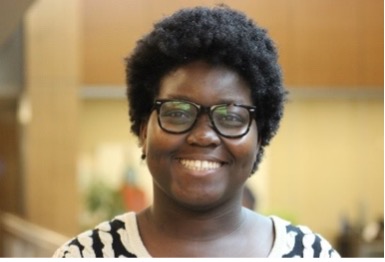
Hello, I, Charity Odetola, an international student from West Africa, greet you from Greensboro, North Carolina, where I am a second-year graduate student at the University of North Carolina at Greensboro, working on a Master’s Degree in Educational Research and Methodology with a Program Evaluation emphasis. This current endeavor, informed by my past experiences, has fostered in me the importance of looking inwards, and outwards, to better understand who I am and the role my positionality plays in the world around me.
Thus, I come here today to contribute to the topic of decolonizing methodologies, with the mind to propose a unique point of view, shaped by a diverse background, while underscoring the importance of positionality.
My reality is that I am part of the African Diaspora, and the brain drain of Africa. Having left my home in West Africa, and moving to the United States, I naively adopted behaviors that permeate the belief that Western training has superior traits to my local heritage. Although this belief is rooted in the real-world stance, where a Western background unlocks more doors than a non-Western background, I personally furthered an agenda that undermined and misrepresented my own heritage. Therefore, the point that I drive home today is the need to examine one’s own positionality; that while I may belong to the minoritized group, I am taking dissenting stances to the advancement and recognition of non-Western methodologies.
In my time in my graduate studies, I am making a commitment to gear my education towards the recognition of alternative methodologies, recognizing their worth and the varied viewpoints that they add to evaluation practice.
My academic and professional interests have been stimulated by my international studies that took me from Lagos, Nigeria (where I was born), to Dakar, Senegal (where I attended elementary school, middle school, and high school), to Northfield, Minnesota (where I attended college), to South Africa, and now Greensboro.
Over the years, as an international student, I often get asked: “So do you plan to return to your home country after your studies?” I have previously gotten upset at that question, wondering “do I not belong, yet again?”. As time passed, I realized that my dislike of the question was rooted in a sense of disconnect, of lack of identity, to the country that was automatically labeled as my own. Whenever I am asked the question, “where are you from?”, my automatic response is “born in Nigeria, grew up in Senegal”. And if pressed, I would add that my only association to Nigeria is as a passport holder and through Nigerian parents. Similarly, while I have spent half of my life in Senegal, I don’t feel I hold strong ties to the Senegalese culture and ethnicity. Yet, despite this disconnect to what ought to be my cultural identities and roots, I find myself yearning for a place to belong.
I like to attribute this degree of apathy to the aftermath of the African Diaspora. Over the years, through discussions and experiences, I have understood the African Diaspora to be the moving of individuals of African descent, away from the continent, whether as a consequence of slavery or as a consequence of the brain drain (the displacement of competent and proficient individuals from their countries of origin). A consequence of colonialism also lies in the easy dismissal of non-Western methodologies (such as African or indigenous groups), and the lauded adoption of Western methodologies, especially as an established yardstick for reliable work. There are other consequences of the African Diaspora, however, I focus on these two consequences.
My reality, however, is not a sad one. In Part II, I then discuss my personal and reflexive approach to evaluation, sharing a lesson I’ve learned along the way, as well as a rad resource to support the topics addressed here today.
Do you have questions, concerns, kudos, or content to extend this aea365 contribution? Please add them in the comments section for this post on the aea365 webpage so that we may enrich our community of practice. Would you like to submit an aea365 Tip? Please send a note of interest to aea365@eval.org. aea365 is sponsored by the American Evaluation Association and provides a Tip-a-Day by and for evaluators. The views and opinions expressed on the AEA365 blog are solely those of the original authors and other contributors. These views and opinions do not necessarily represent those of the American Evaluation Association, and/or any/all contributors to this site.

Charity, I really appreciated this deeply personal and honest reflection that encourages us all to think about our own positionality. Thank you!
Thank you for this beautifully written post Charity. I look forward to reading your Part II. I will admit that I sometimes ask my international students if they would like to return to their homeland post-graduation purely as a way to help them pursue their goals. I never intend for it to make them feel bad or that they don’t belong in the US. I only want to help them achieve their goals post Ph.D. and knowing where they want to go next helps me seek out resources for them. In the future though, I will be more mindful. Thank you for drawing my attention to something that could be hurtful to a student. I appreciate your words and wish you happiness, joy, and strong feelings of identity no matter where your work leads you after graduation.